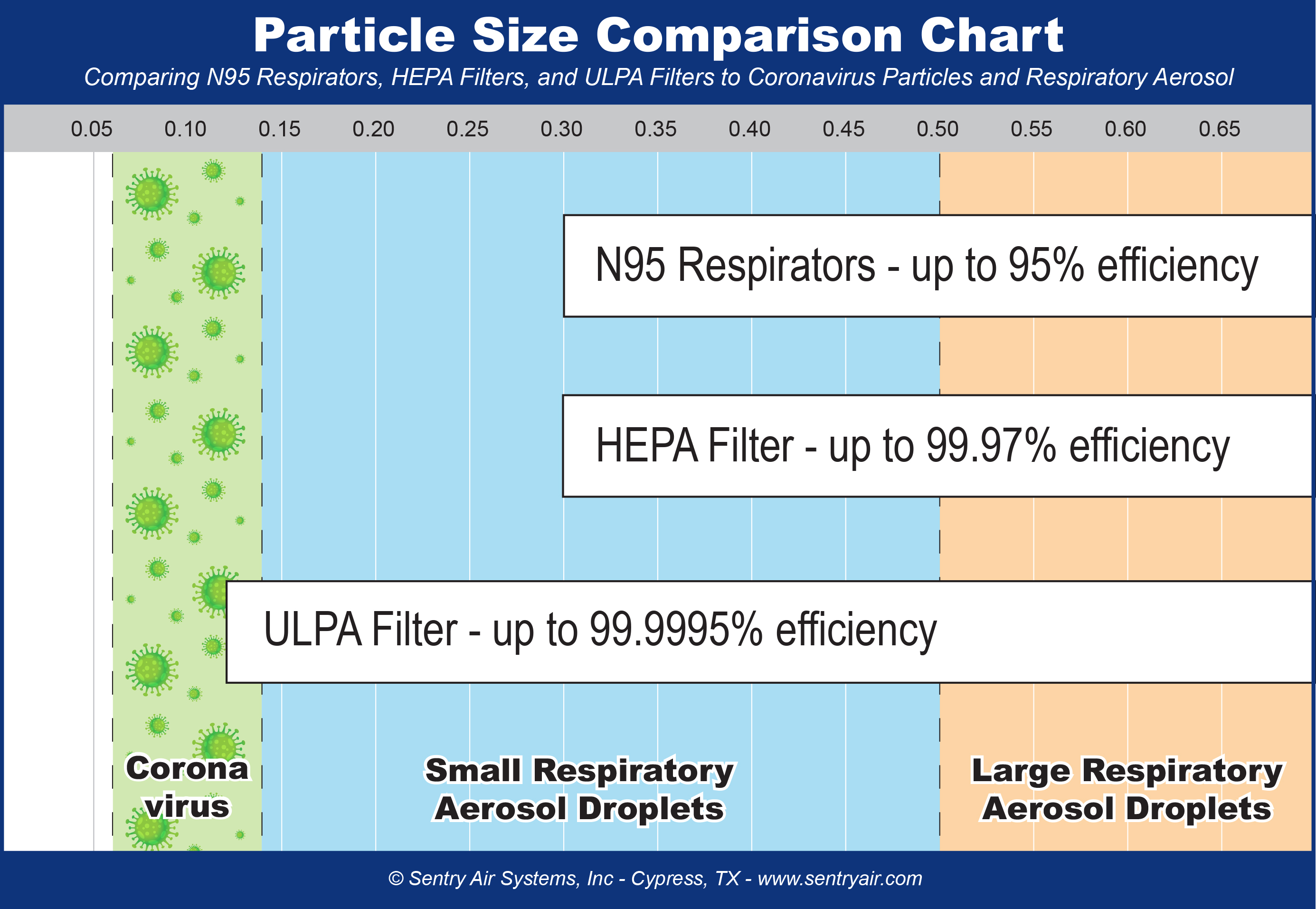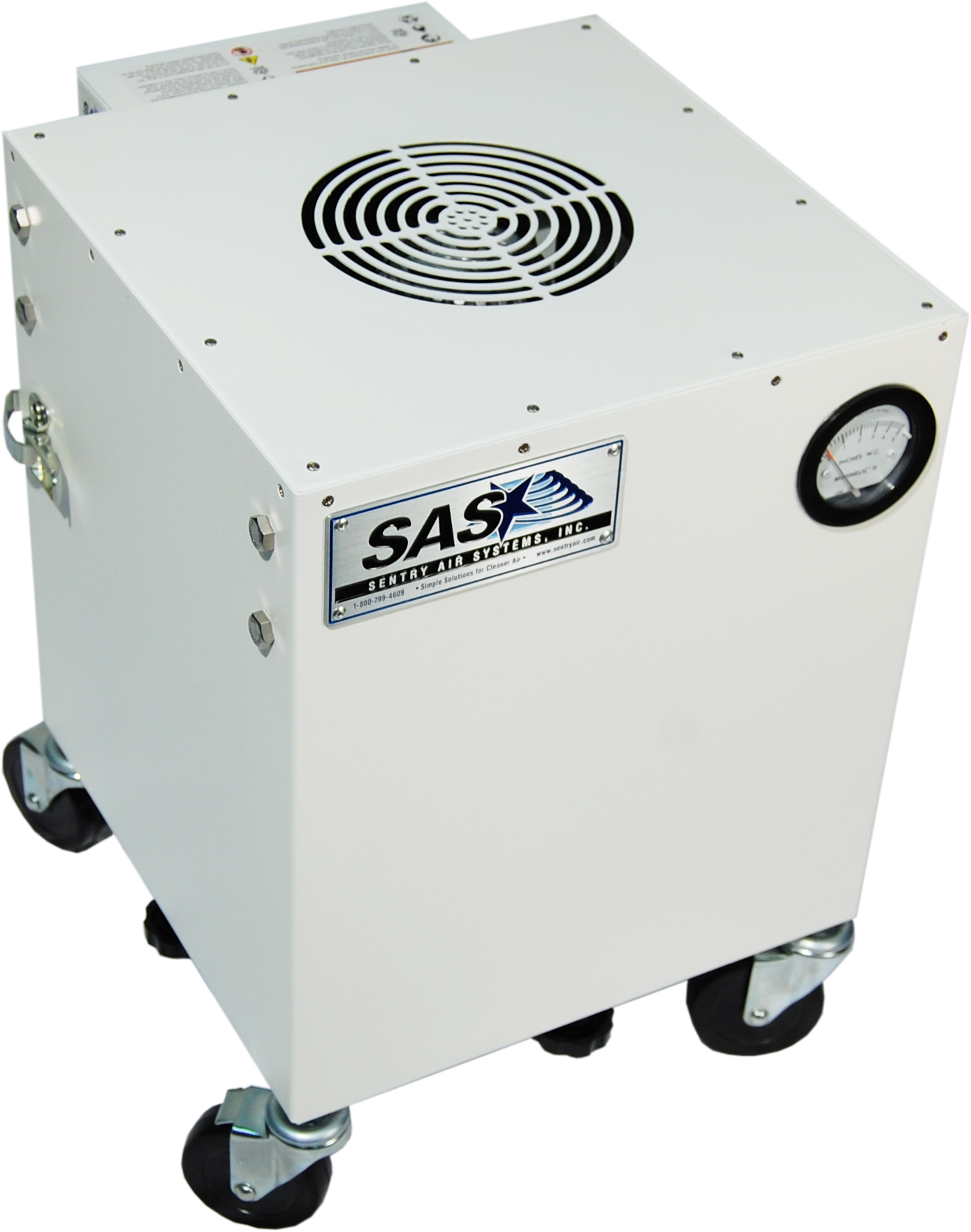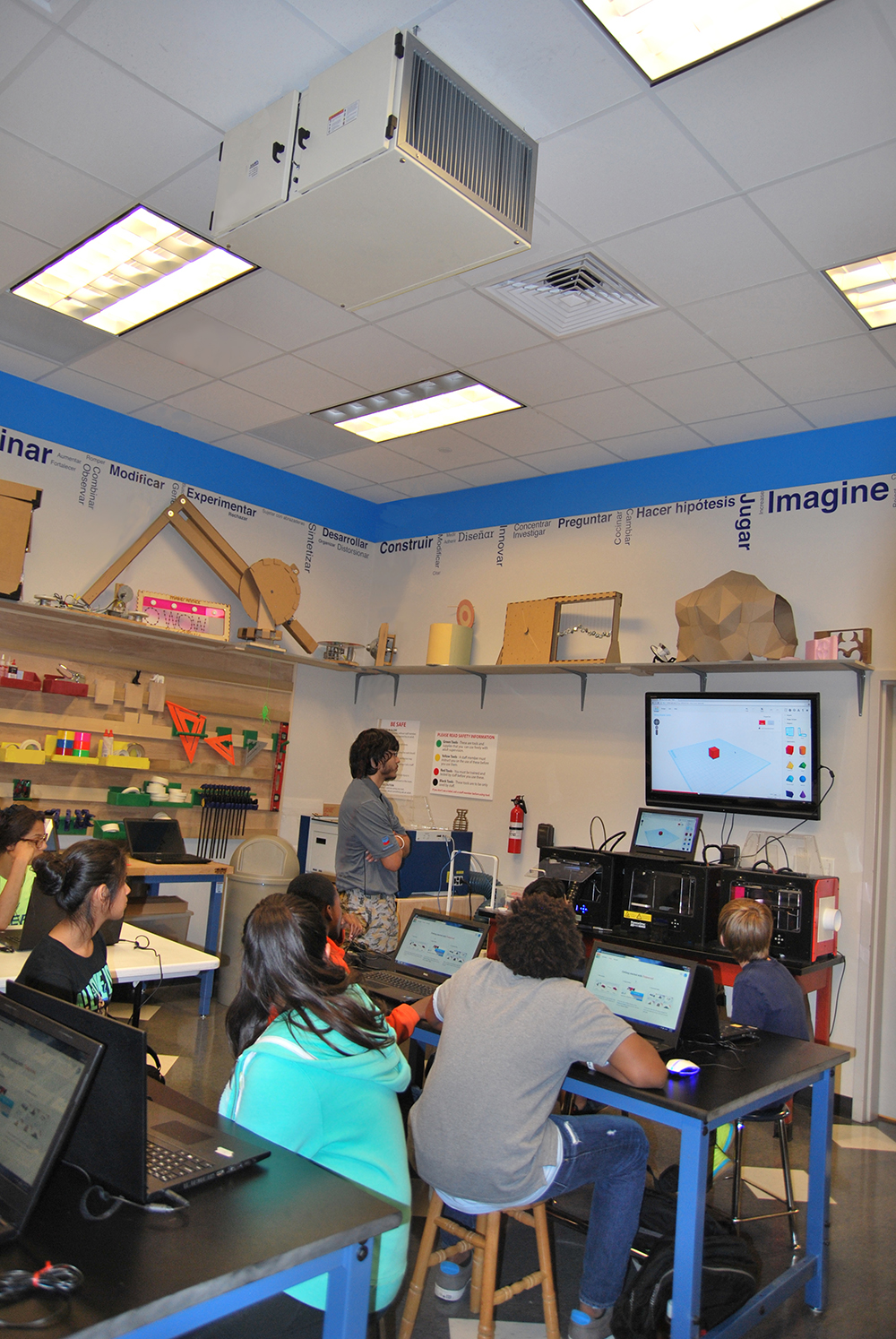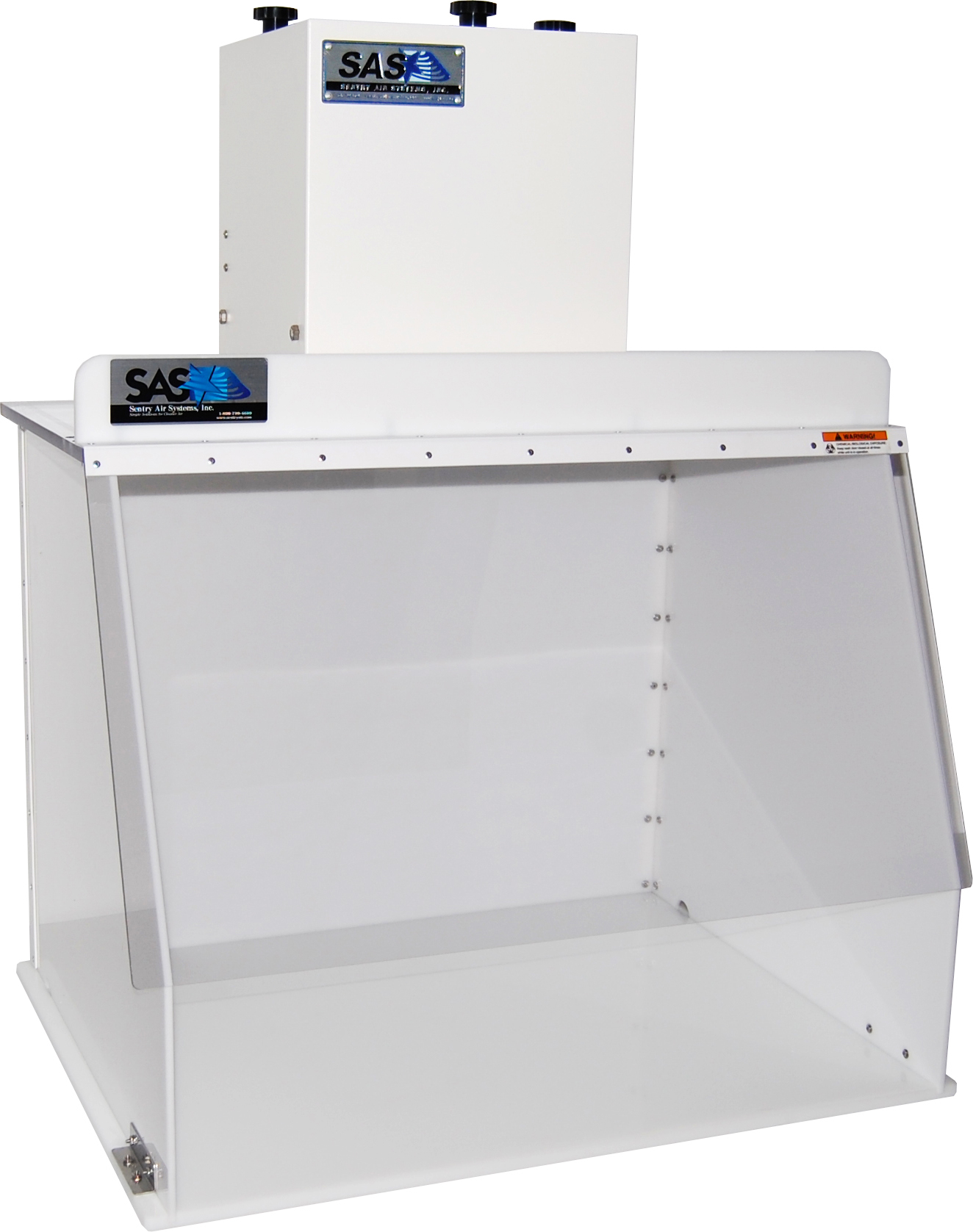On Wednesday, March 11 the World Health Organization (WHO) declared the coronavirus a pandemic (Ref. 1). In order to prevent the spread, everyone must practice increased hygiene and social distancing. As an added protection, certain air filtration systems and containment hoods can aid in combatting the spread of this infectious disease.
General Protection Tips Against the Coronavirus
According to the Canadian Centre for Occupational Health and Safety, employees can practice these essential steps to help prevent the spread of the coronavirus (Ref. 2):
• Sneeze and cough into a tissue or your elbow.
• Throw away used tissues immediately.
• Wash your hands often with soap and water or use hand sanitizer for at least 20 seconds.
• Avoid touching your face especially with dirty hands.
• Stay home if you are sick or have a fever.
• Practice social distancing by avoiding large groups (10+) and keeping a distance from individuals.
Employers can help protect employee safety by:
• Supplying necessary cleaning supplies to sanitize work areas and keep up personal hygiene.
• Disinfect frequently touched surfaces.
• Make sure ventilation systems are working properly.
• Allow employees to work from home if able.
• Improve sick leave policies to encourage employees to stay home when sick.
• Make plans on how to function your business during pandemics.
ULPA Filters to Help Combat the Spread of Coronavirus
ULPA filters in air filtration systems and ductless fume hoods may help combat the spread of the coronavirus. ULPA filters offer up to 99.9995% efficiency on particles down to 0.12 microns. The coronavirus is approximately 0.06 to 0.14 microns in size (Ref. 3). ULPA filters may remove some of the virus particles due to the way they are spread and a filtration method called diffusion.
The coronavirus and other respiratory viruses such as influenza spread mainly through aerosol from sneezes and coughs of an infected individual (Ref. 4). This aerosol contains large and small droplets (<10 microns) with viruses detected in both size particles (Ref. 5). Large particle aerosol mainly affects people in close proximity (within 3 – 5 feet) to the infected person. Influenza, rhinovirus, and adenoviruses spread through large particle aerosol. Smaller particle aerosol (<10 microns) remain airborne for much longer than large particles and can easily be inhaled by people in the same room. These small particle aerosols can be more distantly spread due to air currents and can cause rapid outbreaks (Ref. 4). According to a study done by National Institute of Allergy and Infectious Diseases’ Laboratory of Virology in the Division of Intramural Research in Hamilton, Montana, coronaviruses can remain in the air for up to 3 hours (Ref. 6). To prevent airborne transmission of viruses, the American Academy of Pediatrics recommends the use of negative pressure ventilation and N95 respirators (Ref. 4).
ULPA filters work with filtration systems to draw in these airborne drops to capture and remove most of them from the airflow. The ULPA’s efficiency states down to 0.12 microns, but these filters can also capture some of the very small particles through diffusion. Diffusion, or the Brownian method, states that very small particles (<0.1 microns) move in a random path due to collision with zigzagging gas molecules and may end up sticking to the filter’s fibers. This principle mainly occurs for a slower airflow.
ULPA Filters for Room Air Filtration
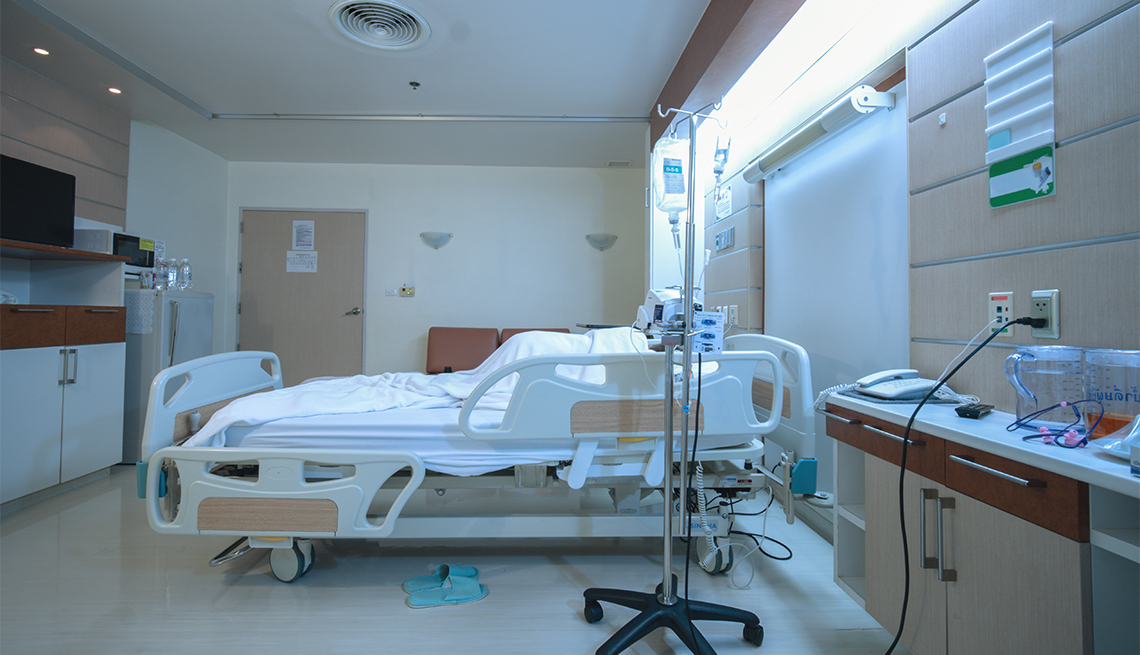
Hospital rooms can benefit from ULPA air filtration
(Picture Source)
Hospitals, doctor’s offices, and other public areas may benefit from the use of ULPA filters in room air filtration systems. These systems draw in respiratory droplets and other airborne particulate to act as an added protection against the spread of germs. This could also be useful in vulnerable populations such as nursing homes to help protect others from infection.
ULPA Filters for Temporary Testing Centers
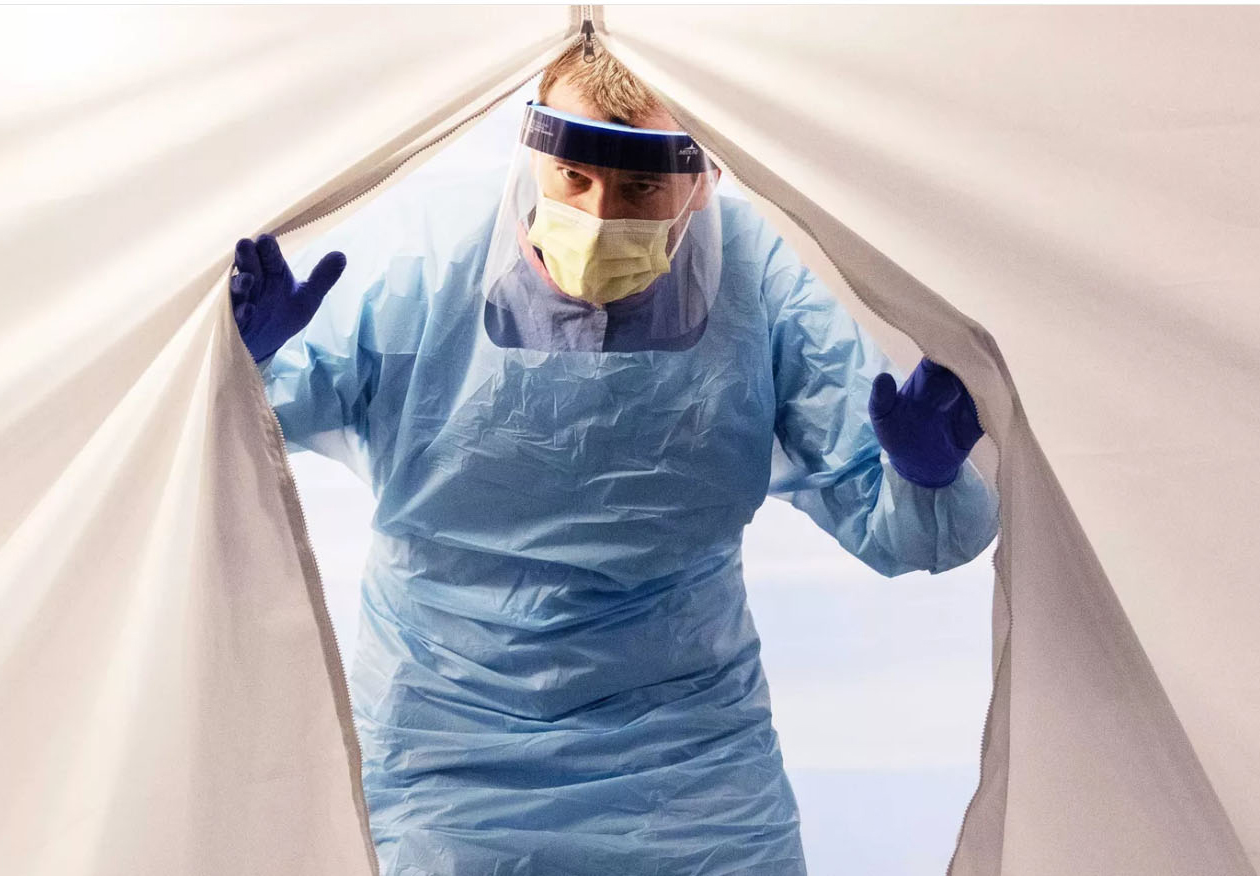
Temporary Testing Centers can benefit from ULPA filtration
(Picture Source)
ULPA filters can be used in room air filtration systems to create a negative pressure environment for temporary popup tents used for coronavirus testing. By using temporary tents with high quality filtration, medical professionals can easily set up high demand coronavirus testing centers that may have added protection.
ULPA Filters for Containment Hoods
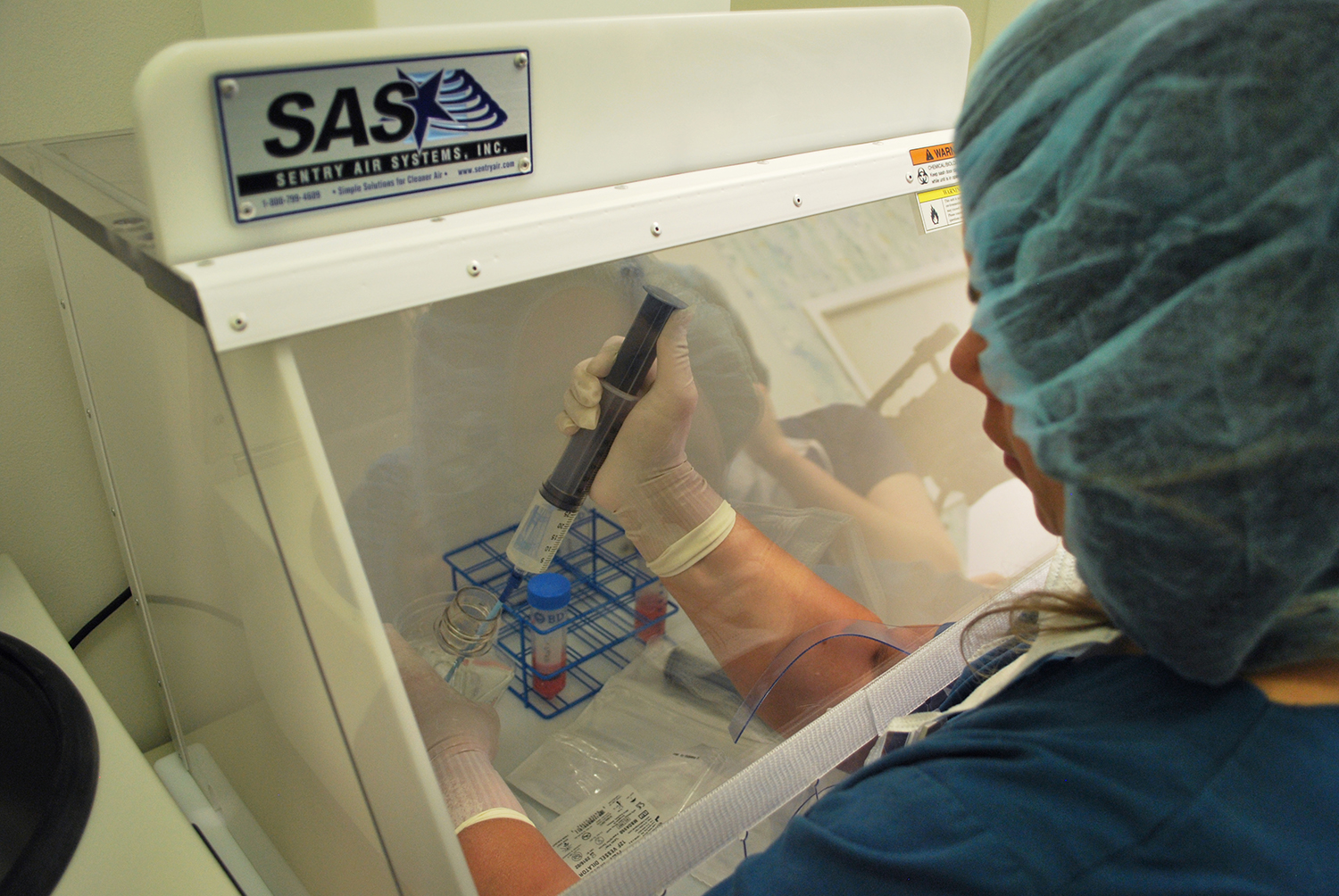
Testing Samples can be stored in Containment Devices
with ULPA filtration
ULPA filters provide additional filtration in containment hoods or ductless fume hoods when working with testing samples. During testing, healthcare workers need a secure storage area to place samples and blood vials before shipping out for analysis. Ductless Fume Hoods with ULPA filters help contain the sample and may help to reduce exposure to health care workers or other nearby patients. These systems filter out particulate and create a recirculating air flow pattern by releasing filtered air back into the surrounding room.
ULPA Filters vs HEPA Filters vs N95 Respirators
HEPA filters can also offer high quality filtration to aid in protection against the coronavirus. HEPA filters are rated MERV 17 with an efficiency up to 99.95% on particles down to 0.3 microns. ULPA filters have a MERV rating of 20 which describes the efficiency. The higher MERV rating indicates that the filter offers higher efficiency. ULPA filters are the preferred choice to capture small respiratory aerosol containing the coronavirus but HEPA filters when used in filtration systems can also help reduce airborne particulate in a healthcare setting. HEPA filters in dual filtration fume hoods offer very high efficiency for containment of testing samples. This configuration is approved for use by USP 800 for nonsterile hazardous drug compounding.
The best way to help protect against airborne exposure of the coronavirus is for healthcare professionals to utilize N95 respirators in conjunction with high quality filtration systems with HEPA or ULPA filters. N95 respirators offer up to 95% efficiency on particles down to 0.3 microns. The graphic below depicts the particle size comparison between N95 mask filters, HEPA filters, ULPA filters, respiratory aerosol particles, and the coronavirus.
For more information on how HEPA filtered solutions for the coronavirus, please click the link below:
Added Protection Solutions
Sentry Air Systems offers air filtration systems and ductless fume hoods to help protect your facility.
Portable Room Air Cleaners
Ambient Air Cleaner (SS-700-FH)
Ductless Fume Hoods
Sentry Air Systems is here during these hard times to help your facility with additional protection.
Call us today at 1-800-799-4609
Please note: These systems are meant as a secondary protection device and not meant as a primary solution. The systems provide a safety precaution to assist in the protection against harmful airborne agents.
References
1. “Coronavirus confirmed as pandemic by World Health Organization.” BBC News, 11 March 2020, https://www.bbc.com/news/world-51839944.
2. “Coronavirus.” Candian Centre for Occupational Health and Safety, 23 March 2020, https://www.ccohs.ca/oshanswers/diseases/coronavirus.html.
3. Robertson, Paddy. “Can Air Purifiers Filter Out The Coronavirus?.” Smart Air Filters,06 Feb 2020, https://smartairfilters.com/en/blog/can-air-purifiers-filter-out-the-coronavirus/.
4. Meissner, H. Cody. “How are respiratory viruses transmitted?” AAP News, 2014 Jan. https://www.aappublications.org/content/35/1/1.2.
5. Cowling, Benjamin J et al. “Aerosol transmission is an important mode of influenza A virus spread.” Nature communications vol. 4 (2013): 1935. https://www.ncbi.nlm.nih.gov/pmc/articles/PMC3682679/.
6. “Coronavirus Resource Center,” Harvard Health Publishing: Harvard Medical School. 2020 Mar 24. https://www.health.harvard.edu/diseases-and-conditions/coronavirus-resource-center.

 Made in the USA
Made in the USA

